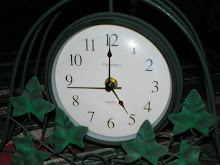This verse makes me think of the concept of the “tabula rasa.” The theory is that we are born as blank slates. According to this when an infant is conceived he is an erased “table” (tablet NASB) (3871) . Nothing has been written and everything is a result of the experiences writing upon that slate. Thus two children that were identical at conception would be different if one mother lived in a quiet peaceful environment and the other was in constant stress and turmoil. Everything that happened would determine the type of person that would develop.
If you don’t recognize it, this is the model of psychology that is preferred by those who deny the existence of God, the behaviorists. Man is good and totally a product of his environment. There is no sin, just social problems. The Bible teaches a different concept.
(Psalms 51:5 KJV) Behold, I was shapen in iniquity; and in sin did my mother conceive me.We were conceived with a flawed nature. It is natural for us to rebel against God. Only His grace can change that. Only the blood can erase the tablet and write a holy history for our remaining days.
So? Allow God to write on your heart. For some that means the erasing of forgiveness and being born again. For others that is the daily experience of going to Him and letting Him renew the day. Here’s to happy hearts.

2 comments:
I guess I would class the theory as a half-truth, like much of the Koran. Taken with what we know to be the truth, it is partly true itself. Alone, it's no more than a believeable lie.
Isn't that a good definition of much of what our culture is based on, half-truths? Unlike bread, half is not better than none.
Grace and peace.
Post a Comment